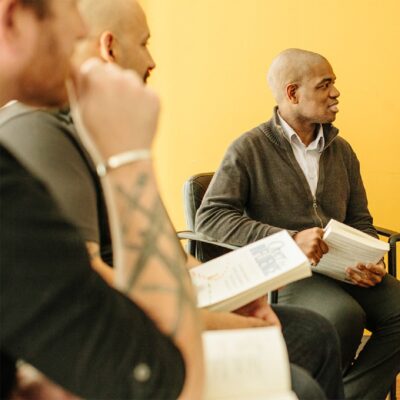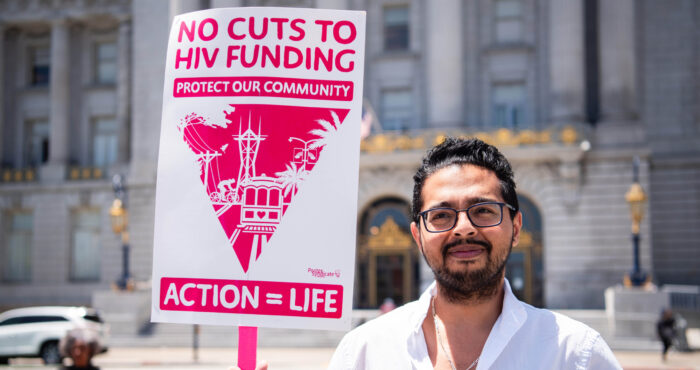Decades after San Francisco closed its gay bathhouses, a new law paves the way for their return
SAN FRANCISCO — District 8 Supervisor Rafael Mandelman introduced legislation Tuesday at the San Francisco Board of Supervisors requiring the San Francisco Department of Public Health to remove current regulations requiring the monitoring of patrons’ sexual activities and prohibiting private rooms in bathhouses and commercial adult sex venues.
“Our current regulations for adult sex venues were put in place as an emergency measure at the height of the AIDS crisis when San Francisco was desperate to slow the spread of HIV/AIDS” said Mandelman. “Decades later, with the emergence of PrEP and in light of San Francisco’s reduction in HIV diagnoses to under 200 for the first time since the 1980’s, these regulations – including a ban on private rooms and required monitoring of patrons’ sexual activities – have no public health rationale and need to be changed.”
In 1984, at the height of the AIDS crisis, the City and County of San Francisco filed a lawsuit against the operators of bathhouses, citing them as a public health nuisance. The court issued an order allowing the businesses to remain open on the condition that they employ monitors to prevent unsafe sex from occurring and remove most of the doors to individual video cubicles, booths, or rooms. Although the bathhouses technically could have remained open under the rules established by the court, all of them closed. In 1997, the Department of Public Health adopted minimum standards requiring that patrons’ sexual activities be monitored on a regular basis by staff, and prohibiting venues from having locking booths, cubicles, or rooms. The minimum standards that are in effect today include these same restrictions.
Recent advances in HIV prevention strategies have reduced HIV transmission and minimized the adverse community and individual health impacts of HIV. These include the broad availability of PrEP (preexposure prophylaxis) to prevent HIV infection, rapid access to antiretroviral therapy for people newly diagnosed with HIV, and increased viral suppression among people living with HIV in San Francisco through increased retention in care. According to the San Francisco Department of Public Health, in 2018 the number of new HIV diagnoses in San Francisco dropped to 197, marking a 58% decrease as compared to the number of new HIV diagnoses in 2011.
“It’s time for regulations that were put in place at a time of fear and a lack of knowledge to catch up with the progress we’ve made in the fight to end AIDS,” said Joe Hollendoner, CEO of San Francisco AIDS Foundation. “With PrEP, U=U and other advancements in sexual health, bathhouse restrictions are antiquated and stigmatizing. It’s time that these baseless regulations be struck from the code, and we are grateful to Supervisor Mandelman for leading this charge to decriminalize sexuality.”
LGBTQ advocates have long argued that the current regulations unfairly target gay men and maintain that without access to private rooms people are more likely to have unsafe sex in other venues without access to safer sex education and supplies. The news of Mandelman’s legislation was met with acclaim by these advocates.
“The queer community has been advocating for decades to have these regulations changed, and each time we’ve run into a dead end,” said Blade Bannon a San Francisco based erotic photographer and author who has spent the last several years working to enact changes to the regulations. “Cities around the country and world have successful adult sex venues operating without these restrictions and it’s time that San Francisco join them. I’m glad that Supervisor Mandelman agrees that it’s time to make a change.”
Mandelman’s ordinance will amend the Health Code to require the Department of Public Health to adopt new minimum health and safety standards for commercial adult sex venues, and will prohibit the department from adopting standards that require monitoring of patrons’ sexual activities, or ban booths, cubicles or private rooms with locking doors. It provides for these minimum standards to include requirements that venues make safer sex supplies and education materials available to patrons. The ordinance requires that these new minimum standards be adopted by no later than July 1, 2020 and that there be a public notice and public comment process.
“When properly operated, by providing access to safer sex educational materials and supplies and HIV and STD testing, these venues assist rather than impede our efforts to control the transmission of HIV,” said Mandelman who is gay and represents the Castro District. “I hope that this ordinance will support our efforts to get to zero new HIV infections and will put a bookend on a painful chapter in the history of the queer community in San Francisco.”
###








